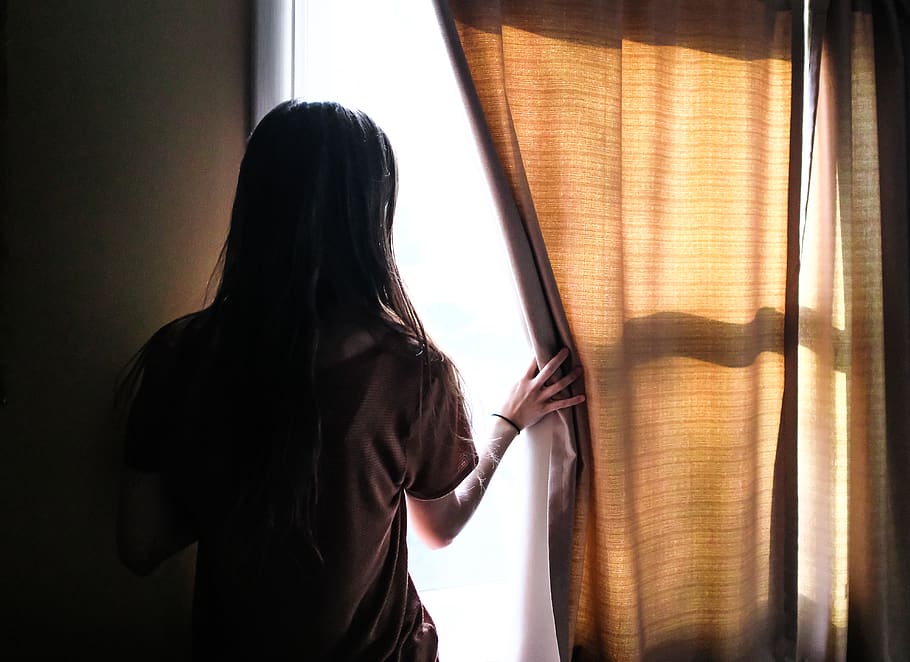How Government policy on the Corona Virus colluded with domestic abusers
Many domestic abuse charities were dismayed when the coronavirus lockdown was announced, with no thought for how women at risk would be protected during this time. Rooted in the knowledge of how domestic abuse works, they could immediately see why this policy could provide carte blanche to the perpetrators of abuse if it did not have adequate safeguards.
In this blog, we outline our primary concerns and responsive actions in a collaboration between Justice Studio and Solace.
About Solace
Solace is the leading violence against women and girls (VAWG) organisation in London, supporting almost 23,000 women, men and children in the past year. Solace exists to end the harm done through Violence Against Women and Girls. Our aim is to work to prevent violence and abuse as well as providing services to meet the needs of survivors particularly women and girls. Our work is holistic and empowering, working alongside survivors to achieve independent lives free from abuse. The need for our services is even more vital during this difficult time.
Understanding how domestic abuse works is to see how government policy has exacerbated an already pervasive issue. There are a number of ways in which the government lockdown has unwittingly colluded with perpetrators: sanctioning control, rules and providing new excuses.
Domestic abuse is all about control.
As the Power and Control Wheel highlights, perpetrators do not need to use physical violence every day, and some never use it at all. Violence is used by perpetrators when they believe that other tactics are failing. Whilst domestic abuse is perpetrated by any sex, men are much more likely to use violence when they believe their tactics are failing, which is why so many woman are killed by their male partners. Other tactics that can be used by the abuser include sexual or financial control, bullying behaviour, denial and blaming the victim, and, crucially in this context: isolation.
Isolation tactics include refusing to look after the children if the victim wants to leave for work or other reasons, moving her to a remote place, and gradually distancing her from her support networks such as family and friends. With a policy dictating social isolation for all, the government have made this tactic much easier, and also morally sanctionable. It helps the abuser to see that isolating someone is acceptable, and not abusive. It plays into their distorted beliefs that isolation is really ‘protection.’ In this context, the government slogan ‘stay safe, stay at home’, implies you will be safe at home. For many women, this is simply a lie, and yet now the abuser has a government endorsed reason to continue.
The government have set a number of new rules in place as part of the C-19 lockdown, restricting how often people can leave the house and who people can and can’t see. In doing so, they are a larger embodiment of the way an abuser will sanction certain behaviours and disallow others. A perpetrator will see his partner as a possession and believe that she should obey him: the rules he imposes keep him knowing whether or not she is under his control. A victim might be told that she can only go out at certain times, to certain places, and that she is not allowed to see certain people. By mimicking this controlling behaviour at the national level, the government is setting a dangerous example for perpetrators.
As any victim understands, it is breaking the rules, whether these rules are clear to the victim or not, that will lead to an outburst. Sometimes she will deliberately refuse to comply, but most of the time she will unwittingly break a rule because the rules change arbitrarily. In either case, once the rules are broken, it throws the perpetrator into a sense of panic, and powerlessness: because the victim has asserted her own agency, it challenges his sense of control, triggering the desperate need to re-assert it. Sometimes his sense of control will be challenged by things that are nothing to do with the victim breaking a rule, but with the circumstances of the perpetrator’s life changing. Maybe he loses his job, puts on weight, or has to deal with the threat of the Covid-19 pandemic. In any case, it is at these times that the perpetrator will do whatever he can to stay in control himself: by controlling his partner, including using violence.
Excuses: Of perpetrators, of government
Perpetrators of violence use excuses to justify this violence to themselves, absolving them of guilt. They will do this both before, and after the violence has occurred. Typically, they will tell themselves that the victim deserves it, that they provoked it, that the victim only responds to violence. With the draconian use of lockdown, the government allows any perpetrator to use the lockdown measures as justification for violence. Using violence is OK because I had to force her not to leave the house. Using violence is OK because it’s the only way to keep her in and to keep us safe.
On top of creating an enabling environment, the government is exhibiting the same kind of cognitive dissonance that simultaneously facilitates and disavows the abuse. With the one hand they say they care about stopping domestic violence through initiatives such as the Domestic Abuse Bill, and Home Office support, yet other actions and messages send an alternative message. The result is confusion, which is ultimately exactly the kind of state that most victims of abuse will find themselves in day to day, preventing them from being clear about what is going on in their lives.
The view from the frontlines
At Solace we saw a 49 per cent rise in calls to our London Advice Line the week before lockdown and since then we have been working with a growing number of women who have managed to leave their abuser, all of whom have been considered at high risk of further harm.
The statistics already give some indication of the dire situation for women experiencing domestic abuse during the pandemic. So far at least 19 women have been killed by my men during lockdown and the Met Police are answering roughly 100 domestic abuse calls per day. There have been over 4000 domestic abuse arrests in London in the 6 weeks from 9th March – 24th April, a 24% increase compared to the previous year.
However, it is vital to highlight that the full picture is still unknown at this time; many women are still unable to report the abuse or escape from their homes. The official figures offer only a glimpse into the reality of the current situation, which is likely to unfold in time, and we are expecting a significant spike in demand for our services when the lockdown is lifted.
Unnecessary risk, avoidable deaths
It is tragic and paradoxical that the risk of death as a result of lockdown policies is higher for some than from the disease measures are supposed to combat. Had the government been more strategic and more cognisant of what damage the lockdown would do, then we would not have been seeing the rising numbers of deaths that we have already seen. When government analyses the deaths as a result of the coronavirus, it needs to consider the deaths of innocent children and women at the hands of their partners in lockdown, and the responsibility its policy had for it.
Moreover, some other jurisdictions have chosen to act. In some states in the US for instance, it’s the abuser who has to leave the home. In France, a man wears a tracker that ensures he can’t go within 5 kilometres of his target. Action at the policy level was clearly possible, but was not taken.
How is Solace helping during Covid-19?
At Solace, we are really concerned about women living in isolation with their abusers and the challenges they face keeping themselves and their children safe. We are doing everything we can to ensure our doors stay open throughout this worrying time and to make sure women and children can still receive all the support they urgently need.
- Our refuges are still open and providing life-changing and life-saving support to women with nowhere else to turn,
- Our Advice Line team and all staff are answering the phones, so women have someone to talk to and;
- Our community advocacy teams are working tirelessly to make sure, no matter where they are, London is safe for women and their children
Solace has been working with commissioners across London to develop an emergency response to the pandemic so women fleeing abuse have access to safe accommodation. In partnership with Southall Black Sisters, we have now launched The Covid-19 Crisis Project offering safe crisis accommodation with specialist support to women and children across London. Never has the need for safe accommodation been greater and we are relieved to be able to deliver this ground-breaking model of support at a time of crisis.
In additional to vital crisis service development, Solace launched an emergency appeal #StaySafeAtHome to ensure that our services could continue to run during this period and provide care packages of essential items to the women and children we are supporting. You can view a film outlining the appeal here.
From our specialist work, we understand the additional challenges women are facing right now while in lockdown. So, we’ve also brought together resources to help survivors, and those supporting them, at this critical time.
Staying safe during Covid-19: Action research with Justice Studio
As soon as the isolation measures were announced without proper safeguards we at Justice Studio feared for the lives of those whose homes are not safe. Now Justice Studio are working with Solace Woman’s Aid on a pioneering piece of research to understand the impact of the crisis on the domestic abuse sector and the women they help. Whilst it may not save everyone this time around, we hope that the research will lead to better decision-making next time we face such a crisis. Findings from the research will be released in January/February 2021. If you would like a first read of the Covid-19 Lockdown and Domestic Abuse report, please contact Justice Studio.
24hr National Domestic Violence Helpline: 0808 2000 247
Solace Advice helpline: 0808 802 5565 (London).
Email: advice@solacewomensaid.org

Fiona Dwyer is the Chief Executive of Solace. She has worked with and for women and young people’s protection for over 17 years. She has also been a trustee at Rights of Women for the past 5 years.

Marianne Moore is the Managing Director and Chair at Justice Studio. As a consultant specialised in women’s rights, she has worked for a variety of clients including the UK Government, bodies such as UNICEF and the Council of Europe, and UK and international not for profit organisations.

